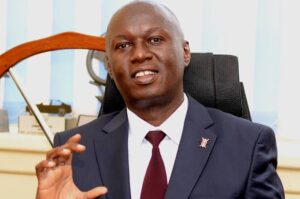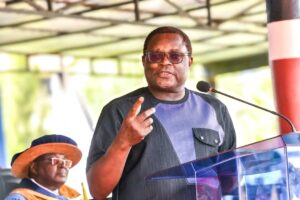MINISTRY OF CULTURE TRAINS BUSIA TRADERS ON IMPORTANCE OF KISWAHILI WHILE TRANSACTING BUSINESSES
Officers from the National Government’s State Department for Culture and Heritage on Thursday undertook the training of Busia small scale traders on the importance and usage of Kiswahili as a national and official language not only in Kenya but also in the region and the African Union (AU).
Addressing the press after the sensitization workshop at Busia Social Hall, Head of Languages in the Ministry, Josephine Lilechi noted that Kiswahili has received global recognition, thus the need to sensitize the jua kali sector on its importance while transacting businesses.
” We opted to train small scale traders to enable them become champions in kiswahili language. We also intend to carry similar trainings of media fraternity and other critical sectors including nurses, boda boda operators and bankers,” she said, noting that they started with training of kiswahili writers.
Ms Lilechi added that the use of kiswahili is critical as it will promote cross border trade especially with neighbouring Uganda which should also embrace kiswahili as official language.
Busia County acting Director of Culture, Grace Apadeet said the training was vital for the small scale traders as the use of kiswahili in their businesses and at home will enhance trade and enable many communities use it as a means of communication instead of mother tongue.
However, Ms Apadeet cited challenges in cross border trade along Busia and Malaba borders where Ugandans use english with Kenyans using kiswahili, thus creating barriers in communication.
” This challenge should not be taken for granted as it deprives the two parties an opportunity to bargain. Those who use kiswahili as a medium of communication will get more customers,” she said.
In July 2019, the African Union partnered with the East African Community to set the pace for the recognition and promotion of Kiswahili as a Language of wider Communication in the whole of Africa.
In February, 2022, the African Union (AU) Heads of States and Governments approved Swahili to be one of the bloc’s official working languages. The approval followed a request by Tanzanian delegation that Swahili is one of the most widely spoken languages in Africa with about 100 million people within and outside the continent.
Kiswahili is already in use in various communities including the East African Community (EAC), the Southern African Development Community (SADC) as well as a teaching language in many African countries.





